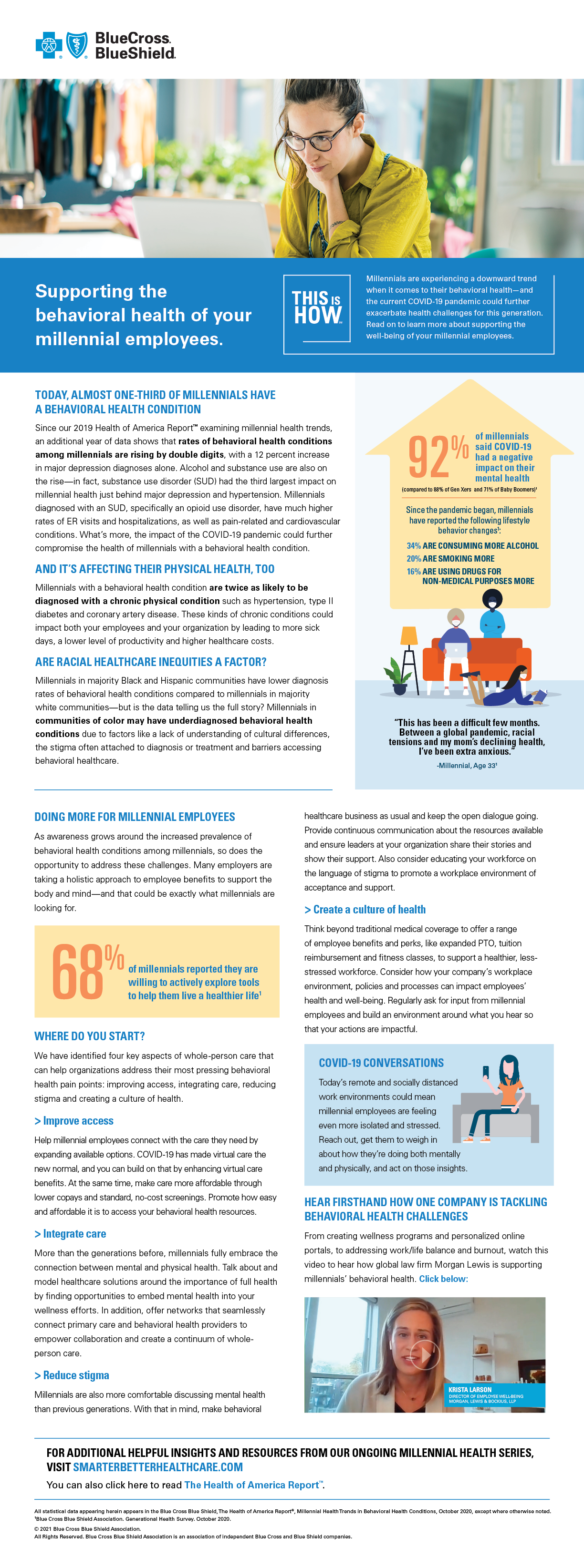Supporting the Behavioral Health of Your Millennial Employees

Millennials are experiencing a downward trend when it comes to their behavioral health—and the current COVID-19 pandemic could further exacerbate health challenges for this generation. Read on to learn more about supporting the well-being of your millennial employees.
TODAY, ALMOST ONE-THIRD OF MILLENNIALS HAVE A BEHAVIORAL HEALTH CONDITION
Since our 2019 Health of America ReportTM examining millennial health trends, an additional year of data shows that rates of behavioral health conditions among millennials are rising by double digits, with a 12 percent increase in major depression diagnoses alone. Alcohol and substance use are also on the rise—in fact, substance use disorder (SUD) had the third largest impact on millennial health just behind major depression and hypertension. Millennials diagnosed with an SUD, specifically an opioid use disorder, have much higher rates of ER visits and hospitalizations, as well as pain-related and cardiovascular conditions. What’s more, the impact of the COVID-19 pandemic could further compromise the health of millennials with a behavioral health condition.
AND IT’S AFFECTING THEIR PHYSICAL HEALTH, TOO
Millennials with a behavioral health condition are twice as likely to be diagnosed with a chronic physical condition such as hypertension, type II diabetes and coronary artery disease. These kinds of chronic conditions could impact both your employees and your organization by leading to more sick days, a lower level of productivity and higher healthcare costs.
ARE RACIAL HEALTHCARE INEQUITIES A FACTOR?
Millennials in majority Black and Hispanic communities have lower diagnosis rates of behavioral health conditions compared to millennials in majority white communities—but is the data telling us the full story? Millennials in communities of color may have underdiagnosed behavioral health conditions due to factors like a lack of understanding of cultural differences, the stigma often attached to diagnosis or treatment and barriers accessing behavioral healthcare.

